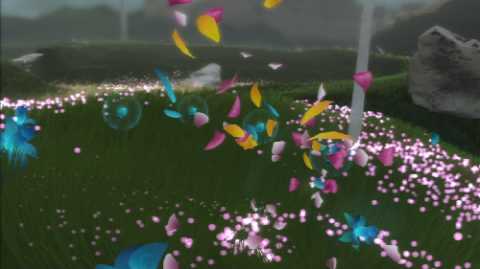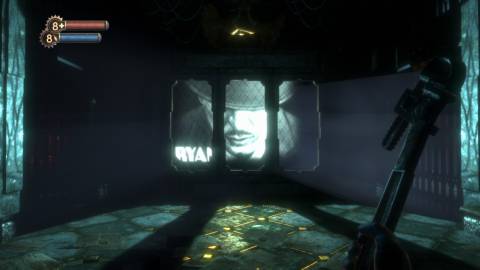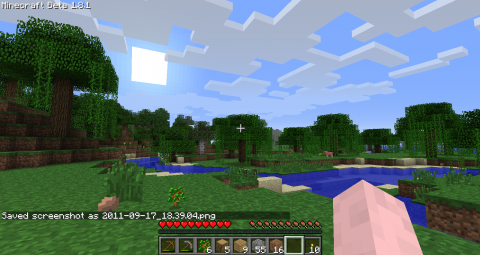The two schools of thought on Innovation in game design
By xpgamer7 5 Comments
With Journey coming out I really should talk about the two schools of thought in game design. I find they're often applied in different amounts together, but they're radically different, despite being able to work well built on top of each other. But I"m getting ahead of myself. Really the two sides are Rethinking everything about a game, or building upon what other games have done. For example Call of Duty built upon what Halo started and made is faster and more gritty. Wheras Halo rethought what made shooters work but built upon the basis of them.

Thatgamecompany is a large suscriber to the first school. If you look at their past games they're rebuilding game design from near the base up. Each one of their games is technically still a game(argue if you want, not the point on this) from flOw being about growing and still being challenged in an almost RPG like design but without most of the tropes. Flower had the main goal of finishing the level by hitting all the dots much like collection in a platformer. But why we don't see them as this is because of the presentation. They didn't want their games classified in this way, and focused on the experience as a whole. In flOw it's slow, you choose what to do, but your actions change your state in the world. Whenyou've pretty much broken the game it restarts. It focuses on the artistic design and your experience as you move through the layers. It's about the moment and the music and characters help that. Flower was about changing the world, embracing nature, and finding calm. Sure it showcased motion control and graphic fidelity, but really it was about that loose sense of freedom. Everything was built on that. And in this design they rethink games from the beginning to create a unique experience.

A good example of building on the shoulders of other games(Other than sequels because...yeah) is Bioshock. Sure it's focused on showcasing a world, but the mechanics are there because of what past games have done. Think about the controls, the perspective, the leveling, the collection. It took from a lot of elements and added a world and story on that. Sure there were other things like better AI and choice but deeper than that it was focused on telling you about the world in the story you're playing out. And to accomplish that it takes the mechanics from other games to constitute the base. Everything from jumping to shooting feels natural with very few caveats because you've done it before. It's an implemented and upgraded system. There are a lot of games that base off this. Producers love it's proven success working on top of new cool looking things to get people interested, and developers love to implement their new ideas(though not being able to completely redefine the experience, play or other elements can ruin it for some). Most AAA titles live by starting with an inventive concept and adding mechanics from other games, streamlining the controls, and iterating it to make it better (Assassin's Creed anyone?).

Then you have the types that blend it together. You can't rethink everything WHILE taking from things. SO instead you do it in parts. Take this and rethink on top of it, Rethink a basic thing and take mechanics to build on top of it. It's really hard to think of an example that stands out as almost EVERY game does this. Really there's few that stick to building on something without rethinking a few parts of it or straight up creating something new. At least recently. If you think back to the older games, beginnings of genres and types, those created out of nothing. Even the ones that were variations of concepts and not completely new are rarely seen in such variation today. Still a lot of people are trying, and more are looking at the past for answers and inspiration. Super Meat Boy is still one of the best examples of level design taking old concepts and making them work. All those little things that developers put in that you don't notice till you get good. That's some of the innovation we need more of, subtle stuff that can't be advertised without losing some of the appeal. But off topic a little, you can take near any game and see this style of both. Hydrophobia? WET? Zomboid? Damn near everything you think of will have some of this design put into it even if the devs don't realize that they're doing it.
In the end I don't think we should lose either. I would like to see more rethinking than there is. Especially in the AAA market. Double Fine just proved how Fluid the gaming market is, and Bethesda is one of those companies that knows risks are good, even if it prefers calculated ones to random. But really we need some of the bigger companies going out and just experimenting. Sony puts a lot of stock in it(maybe because it knows it can't dominate the shooter market, and is trying to only work with it while expanding into new strategies). But most movement is still indie regardless of how cool it is. If we could get a huge team, working on something big and crazy, while all putting in ideas and thoughts on a giant whiteboard while connecting them. Or something. Just if we could get big stuff going it'd be awesome. But going too into that, I really think we have to embrace both. They help cement and evolve gaming. In a scientific way we're always finding new approaches and exploring how we can make games work in better ways. It's a crazy world, and all the recent stuff will make it crazier. I can't wait to see what we think of next.

5 Comments